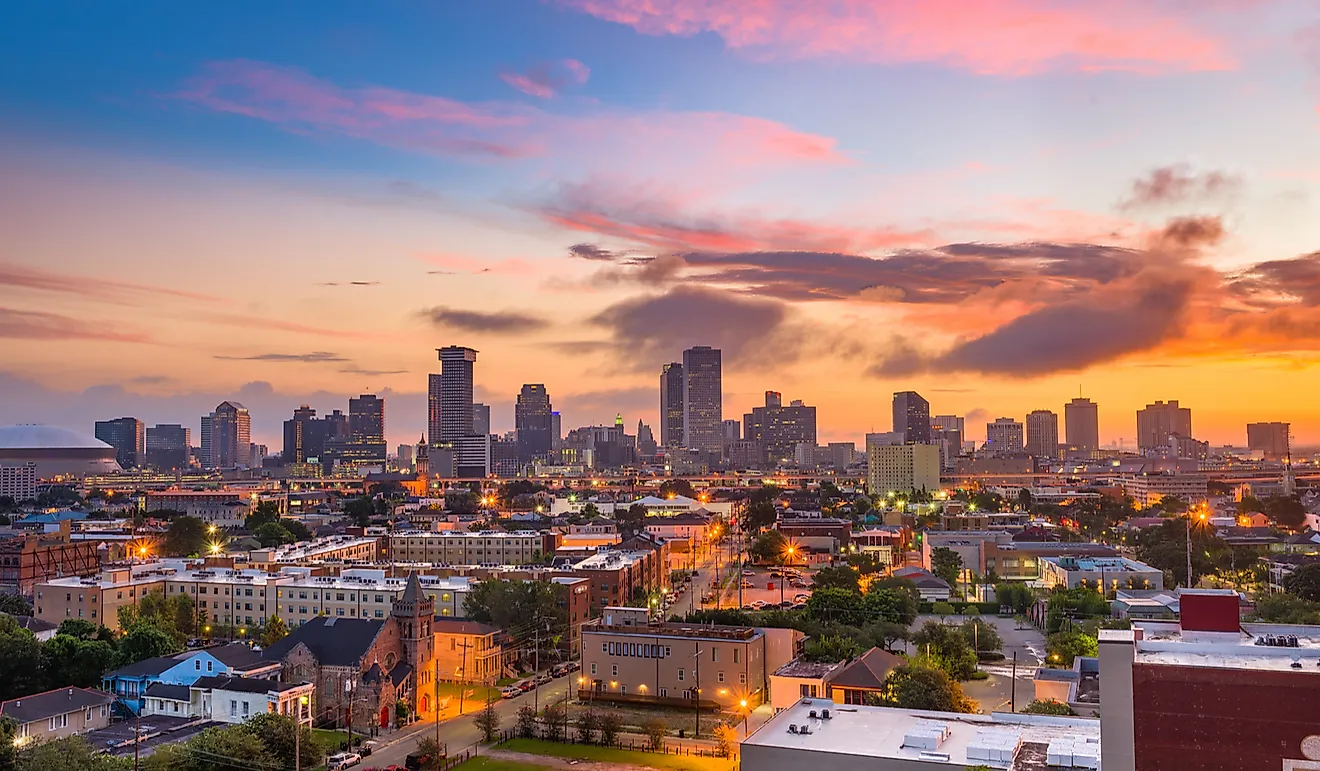Why is New Orleans Called "the Big Easy"?

New Orleans is named after Philippe II, Duc D’Orléans, a senior member of the French royal family who served as a regent between 1715 and 1723. Somewhere between 1900 and the 1970s, the city received the nickname “The Big Easy.” There is no clear origin of the name, but there are several accounts of where it could have originated.
The Big Easy Hall
One of the most popular theories suggests that the name was adopted from the Big Easy Hall, a popular dance hall in Gretna, where famous cornet player Buddy Bolden occasionally performed in the early 20th century. New Orleans was a haven for emerging jazz musicians in the 20th century, and the music has remained part of the culture to date.
A 1970 Novel And Film
A second theory suggests that the name was derived from James Conway’s crime novel The Big Easy, published in 1970. One day while working as a police reporter in a courthouse, he overheard a group of African-American men use the phrase “the big easy.” He was not sure about what they were talking about, but he thought of it as a beautiful phrase. Two years later, he chose the phrase as the title of his book. The name was later used for the film adaption in the 1980s. The phrase was quickly picked up by the public and used as the nickname of New Orleans.
Betty Guillaud
In the late 1960s, Times-picayune columnist Betty Guillaud sought to find a catchphrase to describe the unique lifestyle of New Orleans similar to the “Big Apple,” which refers to New York City. The phrase “Big Easy” was already in use by African-Americans. Strangely enough, “the Big Apple” in reference to New York was first used by African Americans in New Orleans before it was picked up by a New York columnist to refer to the city of New York. Guillaud adopted and popularized the name “Big Easy.”
Prohibition
Another possible origin of the name relates to the attitude of New Orleanians towards alcohol during Prohibition. The ban on alcohol consumption between 1920 and 1933 sought to curb social problems, corruption, and crime, but the Prohibition looked like it never got to New Orleans. People in the city continued enjoying their favorite alcohol and nightlife in total disregard of the drinking ban. It is believed that the city was named “Big Easy” for the uncontrolled life during this period.











